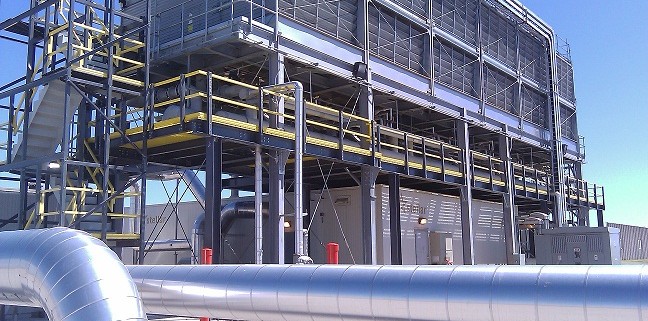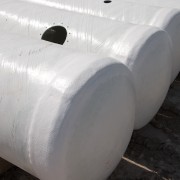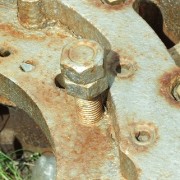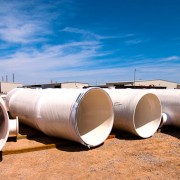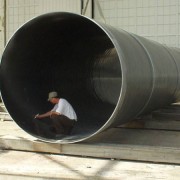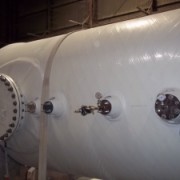Corrosion Resistant FRP in Sulphuric Acid Processing Plants
Recently, Ashland Performance Materials put out an interesting white paper about the use of FRP in Sulphuric Acid (H2SO4) processing plants. G. Bruce Garret, John Recar, and Don Kelley’s “Fiberglass Reinforced Plastics Applications in Gas Cleaning Systems of Sulfuric Acid Plants” looks at the benefits of using FRP in sulphuric acid processing plants, rather than other materials like lead-lined steel or brick.
‘The development and application of fiberglass reinforced plastics construction over the last 20 years have made lead and brick-lined equipment a thing of the past for sulphuric acid plant gas cleaning systems.” The low cost of FRP, when compared with other traditional materials, also makes FRP an attractive and cost effective solution.
The two most common types of H2SO4 processing plants are sulfur burning (hot gas design) and metallurgical/spent acid regeneration (cold gas design). In the second type of plant, metallurgical/spent acid regeneration, “by-product SO2 gas from smelter processing sulfides of iron, copper, zinc, lead, nickel, molybdenum, or other metal is used.” This gas contains a number of contaminates and, “If not removed, the contaminants will reduce product acid quality, foul the mist eliminators and catalyst beds, and accelerate corrosion of equipment in the acid plant.” This is where FRP comes in.
Purifying the gas from these plants is a corrosive job and, in the past, the equipment designed to handle these jobs was created from “lead-lined steel with acid-proof or carbon brick added for protection.” However, this material solution left a lot to be desired. In addition to be requiring long construction times, plant down time, and intensive on-going maintenance this solution also posed health hazards.
The introduction and continuing improvements to FRP technology over the last 20 years has made FRP the preferred material solution for gas purifying equipment in H2SO4 processing plants. In addition to natural corrosion resistance, FRP allows for easier maintenance, repairs, and is a lower cost material solution.
The clear advantages of FRP have made FRP the standard material solution for all types of storage and handling equipment in the H2SO4 processing industry.

